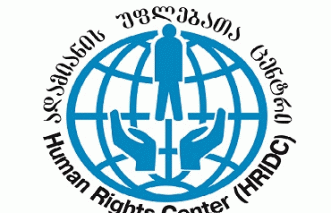140 years ago, on May 15, 1879, first nongovernmental organization “Society for Spreading the Literacy among Georgians” was established in Georgia, which significantly changed the life of our society and created new opportunities for the development.
May 15 is an important date not only for the memorization of the fruitful work of the Society and the results of their activities but also to acknowledge the role of the nongovernmental organizations in the development of the Georgian society in the past and today.
In the modern world, like it was 140 years ago in Georgia, the nongovernmental organizations were established to respect common interests and goals, which could significantly impact the development of the country. Nowadays, there are hundreds NGOs in Georgia, who fight to defend human rights and raise public awareness, to provide citizens with free services; they fight for clean environment and support improvement of the national legislation, establishment of the democratic values and more. Today, like in the past, one part of the society does not accept and even has aggression towards the NGOs.
140 years ago, on this day, the first meeting was held and the Society for Spreading the Literacy among Georgians was established; the elected board members were: Ilia Chavchavadze, Niko Tskhvedadze, Iakob Gogebashvili, Ivane Machabeli, Aleksandre Sarajishvili and Rafiel Eristavi. Dimitry Kipiani was elected to be the Chairman of the Society. Besides them, Ekaterine Gabashvili, Olgha Guramishvili, Barbare Jorjadze and others were actively involved in the activities of the organization.
The need of educating peasants and spreading literacy among people became particularly urgent after the Emancipation Reform and it encouraged establishment of the organization. They created national educational system, Georgian-language schools, introduced new methods in schooling process and the most important - the Society carried out the language reform to improve the literary language and removed 5 archaic symbols from the alphabet.
The Society for Spreading the Literary among Georgians had two main goals for Georgia:
First – to maintain Georgian language for the Georgians. Each member of the Society was fully aware how dangerous Russia and Russification politics was for the Georgian language and awareness. “They started to transform and make [people] Russian from the educational institutions. They declared the Georgian language to be dog’s language and prohibited speaking in Georgian. Who dared speaking in Georgian, they used to put red tablet with dog-tongue on it over their necks,” Nino Kipiani, grand-daughter of Dimitry Kipiani recalled in her memoires.
And second, the role and significance of the women in the work of the Society. It is important to note that it was the period, when the idea of the women’s equality was not yet strong even in leading European States.
It is also important that the Society gave a push to the establishment of many other organizations, raised the issue of equal rights and by spreading the literacy in the society the new ideas of education were supported. Although the Society stopped activities in 1923, soon after the Soviet Regime established in Georgia, it had irreplaceable impact on the history of our country.
Today, we celebrate the 140th anniversary of the NGO activities in Georgia and we continue our work on the traces of the Society for Spreading the Literacy among Georgians, which must bring freedom and progress to our society, strong independence and democratic development to our state.
Georgian Democracy Initiative (GDI)
Media Development Foundation (MDF)
International Society for Fair Elections and Democracy (ISFED)
Article 42 of the Constitution (Article 42)
Open Society Georgia Foundation (OSGF)
Georgian Reforms Association (GRASS)
Transparency International – Georgia (TI-Georgia)
Human Rights Center (HRC)
Institute for Democracy and Safe Development (IDSD)
Network of Televisions
Media Club
Baltic and Black Sea Alliance (BBSA)
Tolerance and Diversity Institute (TDI)
UN Association of Georgia (UNAG)
Georgian Journalistic Ethics Charter
Chavchavadze Center
Georgian Young Lawyers’ Association (GYLA)
Equality Movement
Media Development Foundation (MDF)
International Society for Fair Elections and Democracy (ISFED)
Article 42 of the Constitution (Article 42)
Open Society Georgia Foundation (OSGF)
Georgian Reforms Association (GRASS)
Transparency International – Georgia (TI-Georgia)
Human Rights Center (HRC)
Institute for Democracy and Safe Development (IDSD)
Network of Televisions
Media Club
Baltic and Black Sea Alliance (BBSA)
Tolerance and Diversity Institute (TDI)
UN Association of Georgia (UNAG)
Georgian Journalistic Ethics Charter
Chavchavadze Center
Georgian Young Lawyers’ Association (GYLA)
Equality Movement
Women’s Initiative Support Group (WISG)
News
December 13, 2023
Ethnic minorities outside the peace dialogue
November 6, 2023
‘Peace’ agenda of political parties
Popular
Articles
February 13, 2024




